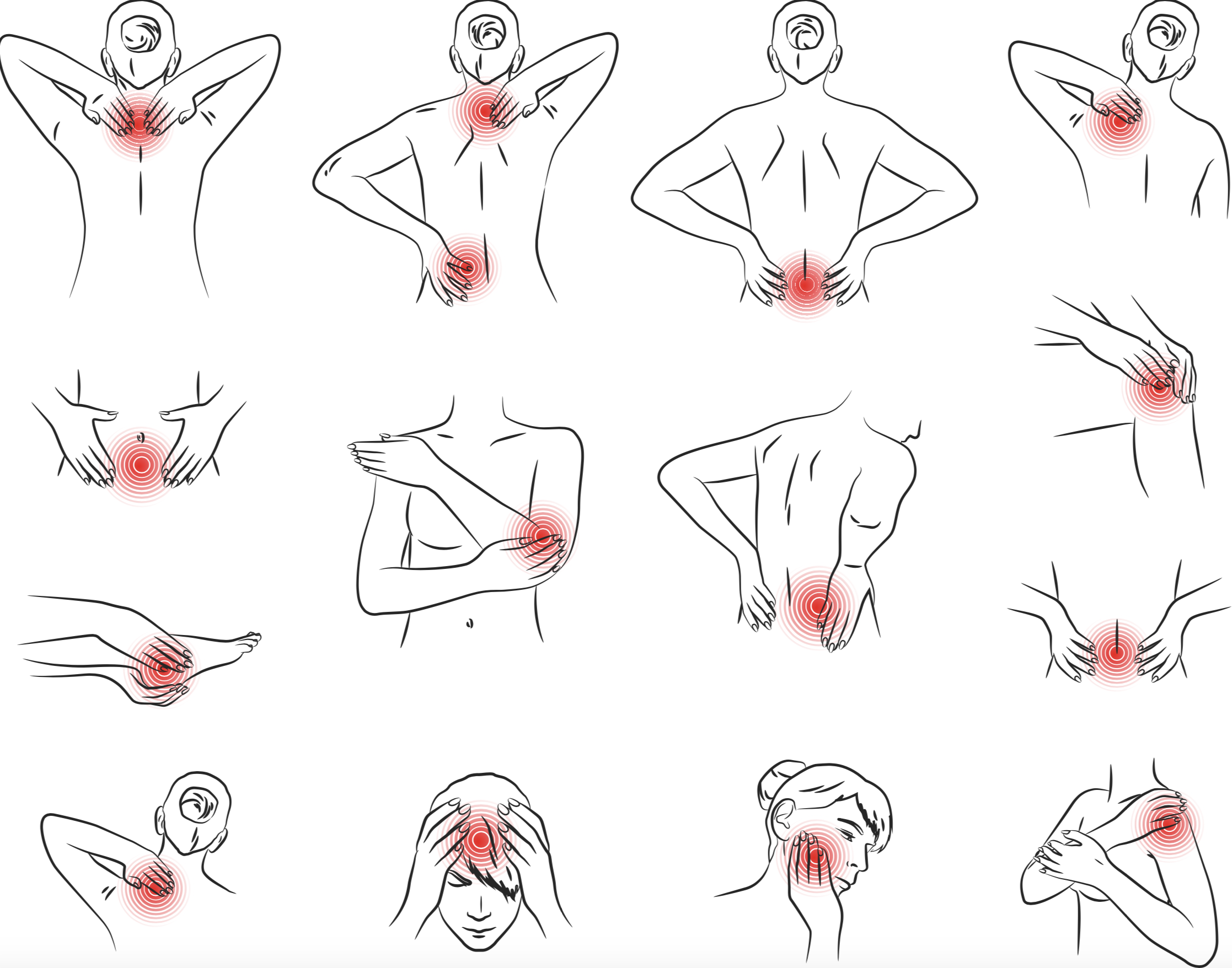Viscerosomatic reactions are essential to understanding how the body is interconnected. Viscero means organ, and somatic refers to the body or muscular system. A viscerosomatic reaction happens when a pain signal from an organ enters the spinal cord where interconnecting neurons relating to peripheral motor (muscles, blood vessels, skin) structures also reside. What this means is that both the muscular system and your organs are linked. Simple examples of this are the Heimlich maneuver and CPR chest compressions because these life-saving techniques physically impact the body or soma.

Think about a hangover from drinking too much alcohol at once. You may remember nausea and headache, but how did your muscles feel? Loose and limber or tight and achy? This was a viscerosomatic reaction to alcohol and is an example of what happens to your body over time with foods that create inflammation. Because there isn't usually an immediate reaction to the wrong foods unless you have a food allergy - such as lactose intolerance, for instance - the connection isn't often made. In fact, the most overlooked cause of back and neck pain is diet. While there are thousands of studies on how nutrition impacts muscular function, very few health professionals have connected the dots properly between the digestive process and nutrition to back pain. Chronic pain, particularly in the back, can be tied to body inflammation. This is not the kind of swelling you see with an acute injury. Still, instead, chronic inflammation can occur internally throughout the body in response to a poor diet that results in low digestive function.
The world of digestion upsets is not a welcoming one. You may be aware that you have a sensitive stomach, but you may not realize how far-reaching the chemical effects are on the rest of your body. Some of what we consume is soothing to the body; some irritate it and cause pain.
What seems to be a physical problem, such as back or neck pain, could be caused by an upset digestive system. If you're not properly digesting your food, toxins can back up your small intestine, create gas, and cause back pain. Consequently, what seems to be a visceral problem, such as difficulty breathing, could be a muscular or structural issue, like a strained rib muscle. Being aware of these viscerosomatic connections is a vital understanding for optimal health.
In a study published in the Asian Spine Journal in 2014, researchers reported that 31% of women and 24.6% of men suffering from back pain also suffered from GI complaints such as abdominal pain or food intolerance. I see a similar percentage of patients who have both GI complaints and stomach inflammation and back or other muscular pain. When these patients tell me that they are frustrated with their body and feel like they can hardly live, much less work out optimally, I point out the choices of Olympic athletes as a good model. Olympians are incredibly particular in their diets because they believe that the proper nutrition will make them stronger. The reverse is also true: the wrong diet will weaken their muscular system function or cause back and other muscular pain. Other poor eating habits - such as stuffing yourself with extra-large meals, skipping meals, or consuming only low-carb foods -can result in low blood sugar and create more stress in the body. All of these factors can ultimately trigger an inflammatory reaction in the stomach which results in back pain.
On the flip side, about 20 percent of patients I encounter describe themselves as 'health nuts.' Fruits and vegetables - including big raw salads, smoothies, and other roughage - are the foundation of their diets. They ALSO suffer from back pain induced by digestive issues. These people are eating too much of a good thing. The lack of variety in their diets and the over-consumption of one or two food groups irritate their digestive systems. The patients complain of gassiness, bloating, abdominal pain, diarrhea, and even constipation. Ultimately we need multiple sources of vitamins, minerals, and other nutrients, and when it comes to the proper diet for the body, balance, and variety are key. By introducing whole grains, more protein, and even some dairy, the transit time becomes more accommodating for positive absorption, and stomach inflammation and its related back pain goes away.
I have a simple assessment you can take to help see if your digestion issues could be causing your back pain. The more you know, the more you can help your back pain!

